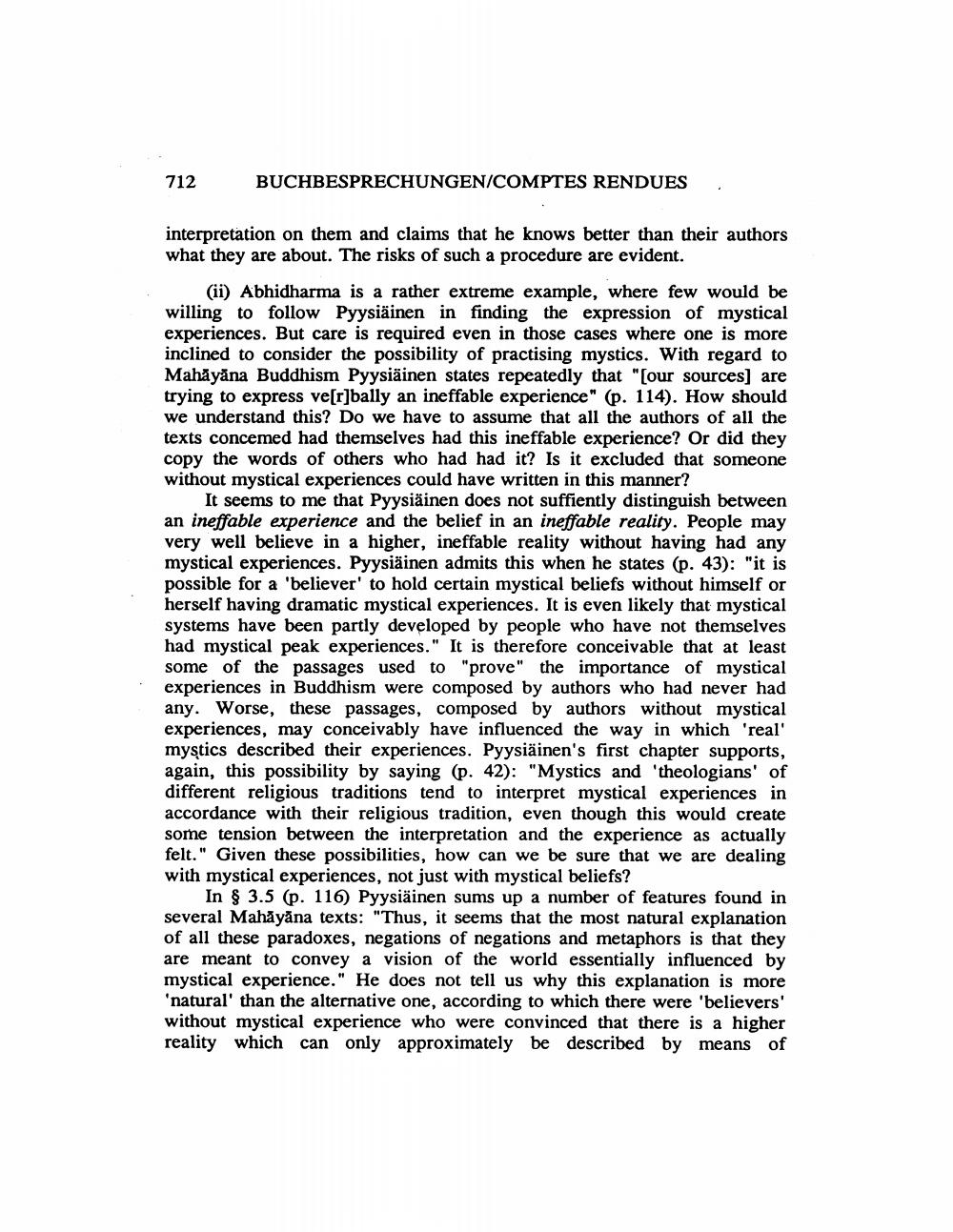Book Title: Buchbesprechungen Comptes Rendus Author(s): Johannes Bronkhorst Publisher: Johannes Bronkhorst View full book textPage 4
________________ 712 BUCHBESPRECHUNGEN/COMPTES RENDUES interpretation on them and claims that he knows better than their authors what they are about. The risks of such a procedure are evident. (ii) Abhidharma is a rather extreme example, where few would be willing to follow Pyysiäinen in finding the expression of mystical experiences. But care is required even in those cases where one is more inclined to consider the possibility of practising mystics. With regard to Mahāyāna Buddhism Pyysiäinen states repeatedly that "[our sources) are trying to express ve[r]bally an ineffable experience" (p. 114). How should we understand this? Do we have to assume that all the authors of all the texts concemed had themselves had this ineffable experience? Or did they copy the words of others who had had it? Is it excluded that someone without mystical experiences could have written in this manner? It seems to me that Pyysiäinen does not suffiently distinguish between an ineffable experience and the belief in an ineffable reality. People may very well believe in a higher, ineffable reality without having had any mystical experiences. Pyysiäinen admits this when he states (p. 43): "it is possible for a 'believer' to hold certain mystical beliefs without himself or herself having dramatic mystical experiences. It is even likely that mystical systems have been partly developed by people who have not themselves had mystical peak experiences." It is therefore conceivable that at least some of the passages used to "prove" the importance of mystical experiences in Buddhism were composed by authors who had never had any. Worse, these passages, composed by authors without mystical experiences, may conceivably have influenced the way in which 'real' mystics described their experiences. Pyysiäinen's first chapter supports, again, this possibility by saying (p. 42): "Mystics and 'theologians' of different religious traditions tend to interpret mystical experiences in accordance with their religious tradition, even though this would create some tension between the interpretation and the experience as actually felt." Given these possibilities, how can we be sure that we are dealing with mystical experiences, not just with mystical beliefs? In $ 3.5 (p. 116) Pyysiäinen sums up a number of features found in several Mahāyāna texts: "Thus, it seems that the most natural explanation of all these paradoxes, negations of negations and metaphors is that they are meant to convey a vision of the world essentially influenced by mystical experience." He does not tell us why this explanation is more 'natural' than the alternative one, according to which there were 'believers' without mystical experience who were convinced that there is a higher reality which can only approximately be described by means ofPage Navigation
1 2 3 4 5 6 7
